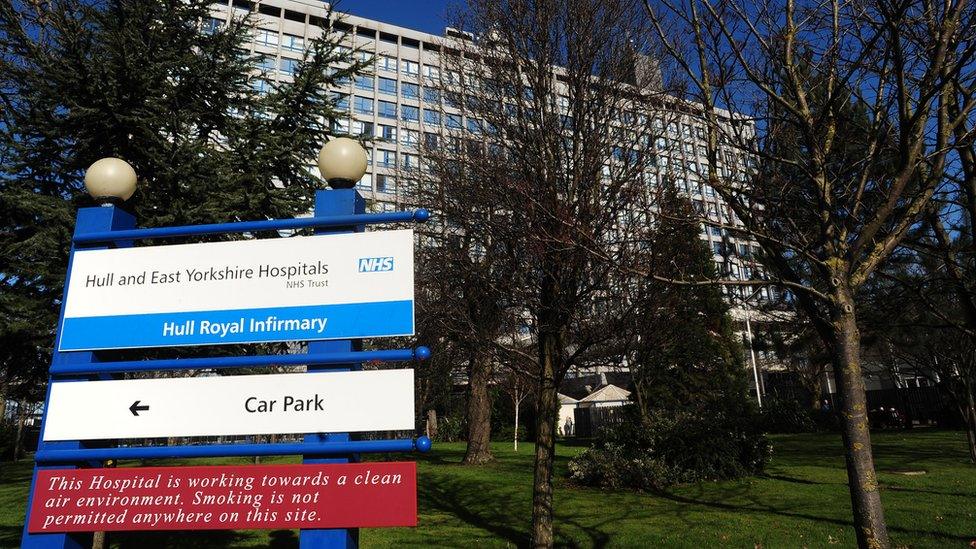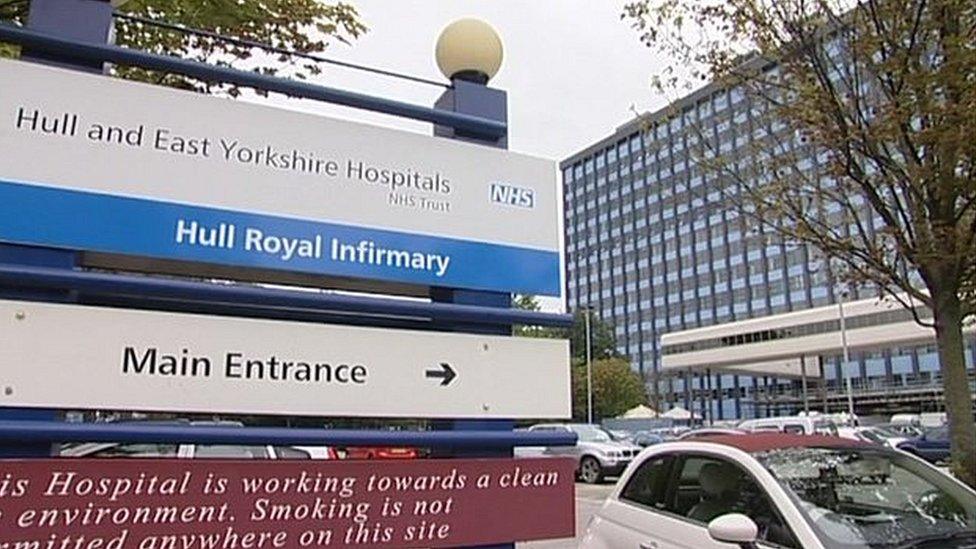Hull hospital's A&E rated inadequate after care inspection
- Published

An inspection from the Care Quality Commission took place in November and December
The A&E department of a Yorkshire hospital has been rated as inadequate, a new report has said.
Hull University Teaching Hospitals was found to require improvement overall for the second inspection in a row.
Staff said workloads felt unmanageable and there was concern over how some people failed to wear PPE.
The trust apologised to anyone who had not received "the quality of care we always aim to provide" and said some issues had already been addressed.
The inspection, from the Care Quality Commission (CQC), looked at emergency and urgent care, medicine and surgery.
The CQC said the trust was failing in all but one area, with services being rated as good when it came to the care given to patients.
The trust's rating for safety moved down from requires improvement to inadequate when compared with an inspection in 2020, inspectors found.
During the visit in November and December, the CQC said there were enough staff to support a level of emergency care, however, staff did not always follow infection control principles including the use of PPE.
Elsewhere, staffing levels were poor with one registered nurse looking after 27 patients.
In surgery, managers did not always investigate incidents thoroughly and were slow in sharing the learning, resulting in potential harm to patients, it said.
There were 83 changes the CQC said the trust must take to meet legal requirements, including ensuring staff looking after patients have the "qualifications, competence, skills and experience to do so safely".
It also found the death rate at the hospital was "much worse" than the national average, and worse at weekends.
Junior doctors who spoke to inspectors said they felt the workload was unmanageable at times and expressed concerns as to how "stretched" they felt.
The overall rating for urgent and emergency care moved down from requires improvement to inadequate and the overall ratings for medical and surgery services also moved down, from good to requires improvement.
'Extreme pressure'
Sarah Dronsfield, CQC deputy director of operations in the North, said leaders did not always manage issues with "timely and decisive" action, affecting care.
In A&E, patients were not checked regularly leading to one person waiting 16 hours for drink or food, Ms Dronsfield added.
She did, however, praise positive interactions between staff and users.
Chris Long, chief executive at Hull University Teaching Hospitals NHS Trust, said the hospital had a "sustained period of extreme pressure" on emergency services, leading to long delays.
"We know that staff have already delivered against many of the urgent actions we set ourselves after we received the CQC feedback."

Follow BBC East Yorkshire and Lincolnshire on Facebook, external, Twitter, external, and Instagram, external. Send your story ideas to yorkslincs.news@bbc.co.uk, external.
Related topics
- Published8 December 2022

- Published6 October 2022
